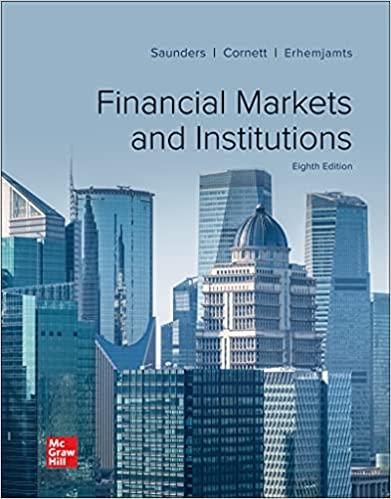Question
Frank Meyers, CFA, is a fixed-income portfolio manager for a large pension fund. A member of the Investment Committee, Fred Spice, is very interested in
Frank Meyers, CFA, is a fixed-income portfolio manager for a large pension fund. A member of the Investment Committee, Fred Spice, is very interested in learning about the management of fixed-income portfolios. Spice has approached Meyers with several questions. Specifically, Spice would like to know how fixed-income managers position portfolios to capitalize on their expectations of future interest rates. Meyers decides to illustrate fixed-income trading strategies to Spice using a fixed- rate bond and note. Both bonds have semiannual coupon periods. Unless otherwise stated all interest rate changes are parallel. The characteristics of these securities are shown in the following table. He also considers a 9-year floating-rate bond (floater) that pays a floating rate semiannually and is currently yielding 5%.
a.) Spice asks Meyers about how a fixed-income manager would position his portfolio to capitalize on expectations of increasing interest rates. Which of the following would be the most appropriate strategy? Explain.
- Shorten his portfolio duration.
- Buy fixed-rate bonds.
- Lengthen his portfolio durations
b.) Spice asks Meyers (see previous problem) to quantify price changes from changes in interest rates. To illustrate, Meyers computes the value change for the fixed-rate note in the table. Specifically, he assumes an increase in the level of interest rate of 100 basis points. Using the information in the table, what is the predicted change in the price of the fixed-rate note?
Step by Step Solution
There are 3 Steps involved in it
Step: 1

Get Instant Access to Expert-Tailored Solutions
See step-by-step solutions with expert insights and AI powered tools for academic success
Step: 2

Step: 3

Ace Your Homework with AI
Get the answers you need in no time with our AI-driven, step-by-step assistance
Get Started


